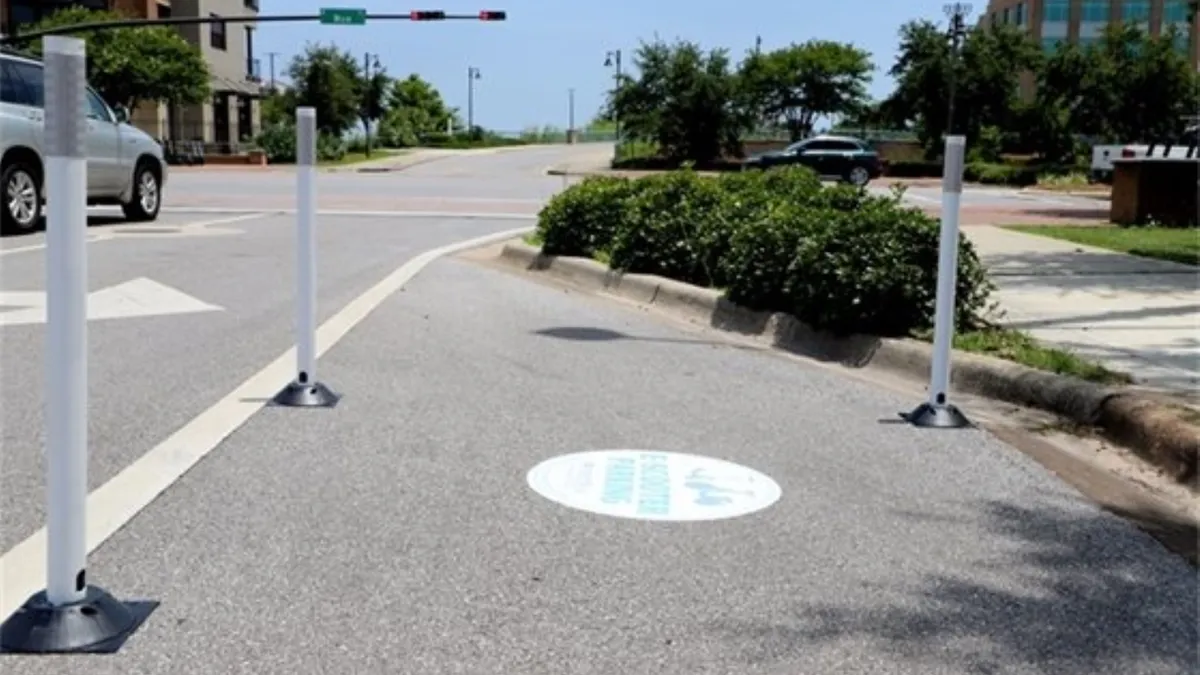Pensacola, Florida, will require riders to park e-scooters in designated parking “corrals” starting Dec. 7 if their trips end downtown, according to a press release Tuesday. Scooter users that violate the new parking rules could receive a $150 fine if they park the vehicles improperly.
E-scooter users can use an app or parking zone map to see where parking is located and required, the city said. Pensacola tried to make it easy for riders to identify parking areas by marking them with decals, striping and, in some locations, posts. Outside the required parking zone, riders will still be able to park freely, including on sidewalks, if they maintain “at least a 4-foot pedestrian path,” according to the press release.
In an email, a spokesperson for the city said Pensacola adopted the policy based on community feedback during the city’s micromobility pilot program. Pensacola made its e-scooter rental program permanent in October.
“Data showed most trips happening in the downtown area, which is also where we have the most pedestrian traffic. E-scooter parking corrals help reduce parking conflicts with pedestrians on sidewalks when there are a significant number of trips ending in a concentrated area,” the spokesperson said in an email.
While many local governments rely on e-scooter riders to behave responsibly, a growing number are limiting where and when people can ride and park dockless scooters to avoid cluttering sidewalks and streets. Such clutter can pose safety and logistical challenges for pedestrians, especially people living with disabilities, and other sidewalk and road users.
A recent study by researchers at the Georgia Institute of Technology found that micromobility restrictions can reduce its use and, in turn, increase pollution if people travel by car instead. However, such concerns largely depend on whether people substitute cars, public transportation or walking for micromobility.











